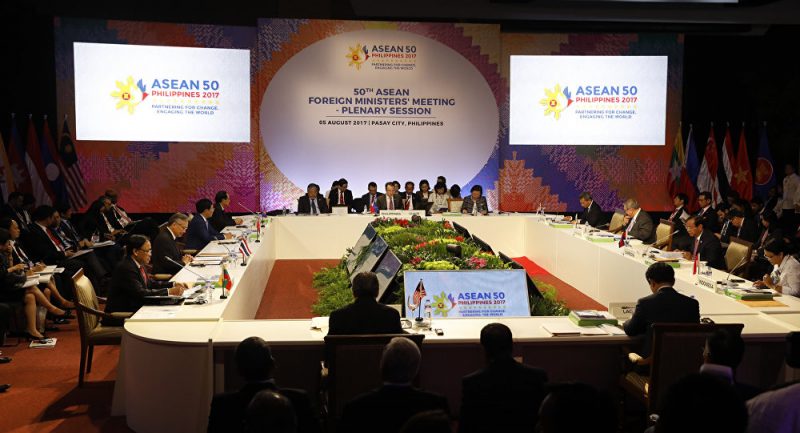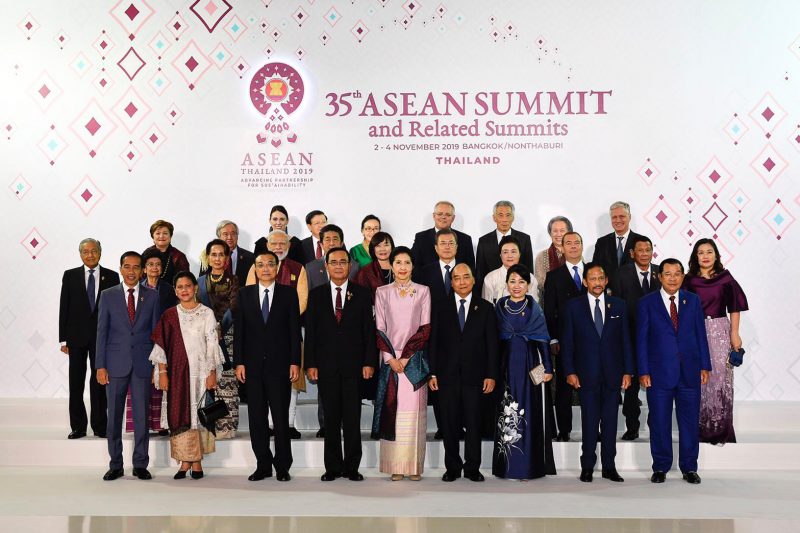In contrast, China has responded to the US not by confrontation, but through tactful negotiations to broaden its options. While the deal, of course, amounts to much more than a mere game between the US and China, it is nevertheless a sign of America’s diminishing influence in the region, and Trump’s policies have accelerated that. Joe Biden will be very much left on the outside looking in.
President Trump’s China policy has been an incoherent jumble, where Neo-Cold Warriors such as Mike Pompeo and aggressive protectionists like Peter Navarro have been very prominent.
They all found a common interest in the belief that waging a trade war against China would not only contain its rise and force concessions from Beijing, but in addition bring back jobs and supply chains back to America. The idea of ‘America First’ was a crown jewel of Trump’s presidency and a big selling point to blue collar voters, to the extent that Biden has adopted similar undertones for his coming tenure.
However, this was not just a strategy for China, as it was for the whole world. The administration advocated the belief that multilateral free trade agreements, derided as ‘globalism’, were detrimental to America’s interests – hence the withdrawal from the TPP.
And so, the only way forward was to weaponize tariffs to force preferential bilateral agreements on other countries. What was a tool to contain China was erroneously used against everyone, including the European Union, Canada, Japan, Mexico and more. Confrontation was the answer for everything, and left the US devoid of strategic thinking.
When you mix this in with the Cold War sentiment of Mike Pompeo, the situation gets worse. Depicting the world in a binary struggle between “free nations” and “the Chinese Communist Party,” Pompeo believed the administration could subsequently bully other countries into taking anti-China stances, purely on the behest of advancing US interests.
In the weeks before RCEP was signed and in the run up to the election, the White House made spurious demands to Indonesia, Japan and South Korea to stand up to Beijing, expecting dogmatic ideological commitment, despite providing no incentives. Thus, the accumulation of all these policies set the US up for a fall.

This mix of ‘America First’ and ‘new Cold War’ thinking left the US unable to contemplate the economic interests of many countries and their incentives in economic integration, not least with China itself.
The idea that Beijing could be removed from the global economy and that American trade interests were the only thing which mattered did not compute, and in turn led to a diminishing of US economic influence in the region over a four-year period.
China also responded in a way that was given little attention. Rather than meet hostility with hostility, Beijing has doubled down on diversifying its free trade options and sought to consolidate its position in global commerce.
China has established a number of deals in the past few years, including an agreement with the Eurasian Union (Armenia, Belarus, Kazakhstan, Kyrgyzstan and Russia). But the RCEP deal is by far the biggest and the most strategically significant.
Trump’s mistakes mean the RCEP places Biden at an immediate disadvantage when his term as president begins. The US sits outside of both major regional trading agreements.
Although the idea of Washington revisiting the TPP has been touted in the media, this is politically untenable. Firstly, following Trump’s withdrawal, the other members renegotiated between themselves and removed US demands they no longer wanted to meet, meaning American re-entry would force the entire agreement to be re-negotiated yet again.
Secondly, the legacy of Trump’s and Biden’s own emphasis on protectionism means the deal remains politically unpopular. ‘America First’ jobs and manufacturing remain the paramount goal.
On this note, it is not surprising that the mainstream media, and many think tank analysts, touted the RCEP as a strategic coup for Beijing.
Although the nations of ASEAN should not be removed from the picture, given it was their initiative, the fact is China is now central to the world’s largest trading bloc and thus is able to integrate its markets more deeply with those involved, including a number of US allies.
In contrast, Trump’s term in office has witnessed a series of strategic blunders which have seen Washington deprive itself of a rival alternative. America First put America Last.
***
Published by Rt.com
Republished by The 21st Century
The views expressed in this article are solely those of the author and do not necessarily reflect the opinions of 21cir.

